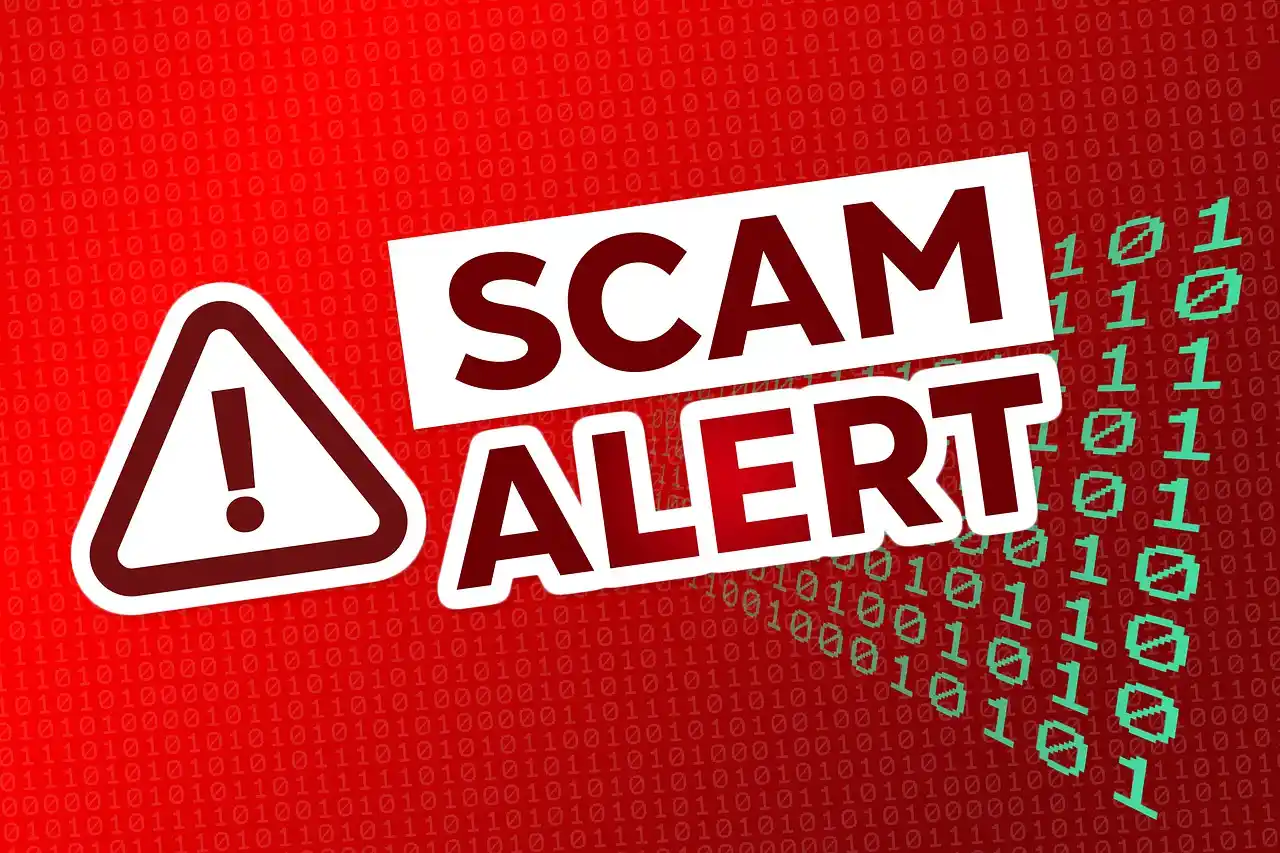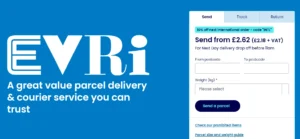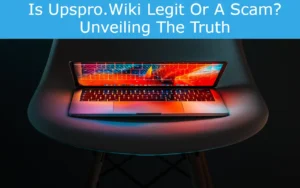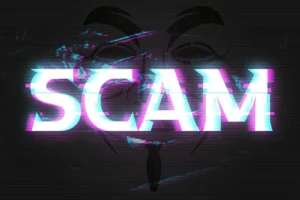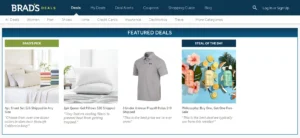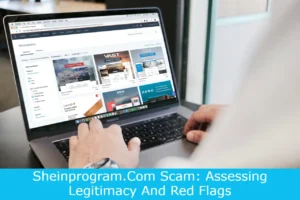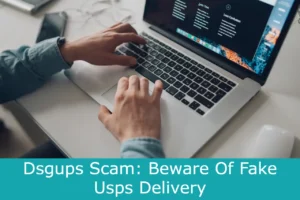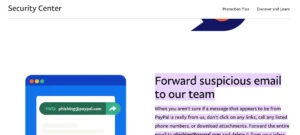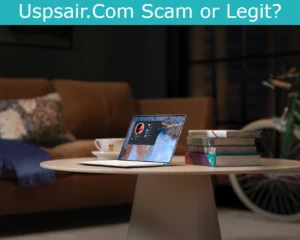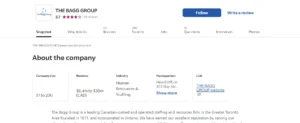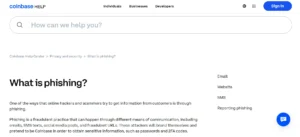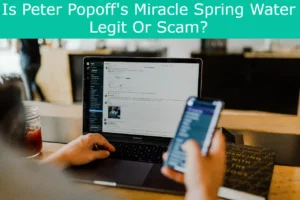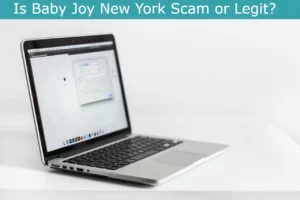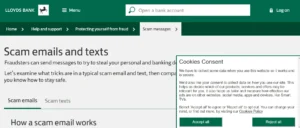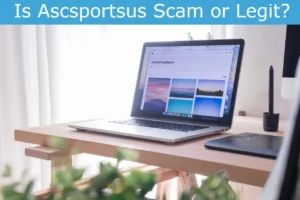Is Fokups Scam or Legit? – The purpose of this article is to provide an overview of the Fokups phishing scam, a fraudulent website that impersonates the United States Postal Service (USPS).
The scam involves scammers sending unsolicited text messages to individuals, claiming to be from USPS, and providing fake tracking numbers along with a link to Fokups.
The objective is to deceive recipients into believing that the message is legitimate and from USPS, thereby tricking them into revealing personal information that can be used for identity theft or fraud.
To protect oneself from this scam, it is essential to avoid clicking on the link in suspicious messages and instead verify with USPS through their official website or customer service.
Additionally, reporting any phishing messages to USPS and exercising caution when sharing personal information online are crucial steps in preventing falling victim to the Fokups phishing scam or similar threats.
By remaining informed about common phishing scams and maintaining vigilance, individuals can safeguard themselves against such fraudulent activities.
Fokups Scam Overview
The Fokups phishing scam is a fraudulent scheme that involves scammers sending unsolicited text messages impersonating USPS and directing recipients to a fake website, with the intention of deceiving them into revealing personal information or falling victim to identity theft.
This scam exploits USPS’s reputation and uses fake tracking numbers to create a sense of urgency or fear in recipients.
The Fokups website closely resembles the official USPS website, tricking users into thinking it is legitimate.
Once on the website, users may unknowingly reveal personal information, which can be used for fraudulent activities.
To prevent falling victim to this scam, it is important to avoid clicking on any suspicious links and verify any messages with USPS through their official website or customer service.
Additionally, it is crucial to report any phishing messages to USPS and stay cautious about sharing personal information online.
By staying informed about common phishing scams, individuals can protect themselves from the Fokups scam and similar threats.
Is Fokups Scam or Legit?
Receiving an unsolicited text message from a trusted delivery service, along with an unexpected tracking number and a link that directs to an unfamiliar domain, may be indicative of a potential scam.
It is important to be vigilant and aware of the signs of a fake USPS website to protect yourself from phishing scams. Here are four key indicators to watch out for:
- An unsolicited text message from USPS
- Unexpected tracking number in the message
- The link in the message directs to an unfamiliar domain instead of the official USPS website
- The message uses urgency or fear tactics
To safeguard against these scams, it is crucial not to click on the link in the suspicious message. Instead, verify the information directly through the official USPS website or customer service. Additionally, report the phishing message to USPS and remain cautious about sharing personal information online.
By staying informed about common phishing scams and being proactive in protecting your personal information, you can shield yourself from the threat of fake USPS websites and similar phishing scams.
How does the Fokups Scam Work?
One way scammers execute this phishing scam is by sending bulk text messages impersonating USPS and including fake tracking numbers and a link to a deceptive website. This website is designed to trick users into revealing personal information, which can then be used for identity theft or fraud.
To prevent falling victim to this scam, it is important to recognize common phishing techniques and stay vigilant.
Avoid clicking on any suspicious links, especially those received through unsolicited text messages. Instead, verify with USPS through their official website or customer service.
Additionally, report any phishing messages to USPS to help them take action against the scammers. It is also crucial to be cautious about sharing personal information online and to stay informed about common phishing scams.
| Preventing Identity Theft | Recognizing Common Phishing Techniques |
| Use strong, unique passwords for all online accounts | Be wary of unsolicited emails or text messages |
| Enable two-factor authentication for added security | Check for spelling and grammatical errors in messages |
| Regularly monitor bank and credit card statements | Avoid clicking on suspicious links or downloading attachments |
| Use reputable antivirus software to protect against malware | Educate yourself on the latest phishing techniques and scams |
What to Do If You Receive a Phishing Message?
If you receive a phishing message, it is important to take immediate action to protect your personal information and prevent falling victim to the scam.
Firstly, refrain from clicking on any links provided in the suspicious message, as these may lead to fraudulent websites designed to trick you into revealing sensitive information.
Instead, verify the authenticity of the message by visiting the official USPS website or contacting customer service directly.
It is also crucial to report the phishing message to USPS, as this helps them identify and take action against the scammers.
Additionally, it is essential to exercise caution when sharing personal information online and stay informed about common phishing scams.
By following these steps, you can safeguard your personal information and reduce the risk of becoming a victim of phishing scams.
The threat of the Scam
The Fokups phishing scam poses a significant risk to individuals’ personal information and can potentially lead to identity theft or fraud. By exploiting the reputable name of USPS, scammers deceive recipients into thinking they are receiving legitimate packages or delivery updates.
This scam works by sending unsolicited text messages containing fake tracking numbers and a link to the Fokups website, which is designed to resemble the official USPS site. Once users click on the link, they are tricked into revealing personal information, which can be used for nefarious purposes.
Falling victim to this scam can have serious consequences, including the compromise of personal and financial information. Additionally, the scam tarnishes the reputation of USPS, impacting its trustworthiness and reliability in the eyes of the public.
It is crucial for individuals to stay vigilant, report any suspicious messages, and refrain from sharing personal information online to protect themselves from this and similar phishing scams.
Preventing Phishing Scams
To prevent falling victim to phishing scams like the Fokups phishing scam, individuals should employ proactive measures such as staying informed about common phishing tactics and regularly updating their knowledge of online security practices.
By understanding the common phishing techniques used by scammers, individuals can recognize suspicious messages and avoid clicking on malicious links. It is crucial to be aware of the importance of cybersecurity awareness and the potential risks associated with sharing personal information online.
Regularly updating security software and using strong, unique passwords can also help protect against phishing attempts. Additionally, individuals should be cautious when providing personal information online and should verify the legitimacy of websites and messages before sharing any sensitive data.
| Column 1 | Column 2 | Column 3 | Column 4 |
| Stay informed | Recognize suspicious messages | Update security software | Use strong, unique passwords |
| about common phishing tactics | and avoid clicking on malicious links | regularly | to protect against phishing attempts |
| Importance of cybersecurity | Be cautious when providing personal information online | Verify legitimacy of websites | Regularly update knowledge of online security practices |
| awareness | and messages |
Frequently Asked Questions
Can scammers use Fokups to send phishing emails as well, or is it only through text messages?
Scammers can potentially use fake USPS websites like Fokups for email phishing attacks, not just text messages. These websites can be exploited to impersonate other organizations and deceive users into revealing personal information, increasing impersonation risks.
Are there any specific red flags or warning signs to look out for when receiving a text message from USPS?
Signs to look out for in USPS text messages include receiving unsolicited messages, unexpected tracking numbers, and links to unfamiliar domains. To report phishing messages to USPS, verify with the official website or customer service and report the message to USPS.
What steps should I take if I accidentally clicked on the Fokups link in a phishing message?
To prevent falling victim to phishing scams, it is important to take immediate action if you accidentally click on a phishing link. Disconnect from the internet, run antivirus scans, change passwords, and monitor accounts for any suspicious activity. Additionally, it is crucial to increase cybersecurity awareness to recognize and avoid such threats in the future.
Can scammers use different domain names other than Fokups to carry out similar phishing scams?
Scammers can use alternative domain names in USPS phishing scams, not limited to “Fokups.” They employ common tactics like sending unsolicited messages, using fake tracking numbers, and creating deceptive websites to trick users into revealing personal information.
Are there any additional measures I can take to protect myself from falling victim to the Fokups phishing scam?
Additional precautions to protect against the Fokups phishing scam include: keeping software and antivirus programs up to date, avoiding clicking on suspicious links or downloading attachments, using strong and unique passwords, and enabling two-factor authentication. Implementing these cybersecurity tips can help safeguard personal information and prevent falling victim to such scams.
Also Read
Is Borodex.Com A Legit Investment Site Or A Risky Scam?
Is Carfromjapan.Com Legit Or A Scam? Unveiling The Truth
Also Read
Pure Leaf Grant Scam – Pure Leaf’s No Grants Contest!
Clissal Shop Scam: A Warning For Online Shoppers
Also Read
Is Briar Travel Legit or a Scam? Unforgettable Bahamas Vacations!
Is Adorama Legit or a Scam?: Can You Trust Them?
Also Read
Waterparksale.Com: Is It Legit Or A Scam? Avoid Shopping Scams
Is Tx.lotto.com Legit or a Scam? Unlock Your Lottery Dreams
Also Read
Is Fragrancenet.com Legit? Discover Affordable Fragrances!
Is Designer Optics Legit? Designer Optics Delivers Style And Function
Also Read
Liclothina Scam – Is This Clothing Store Legit or a Scam?
Social Oasis Reviews – Is Social Oasis Legit or a Scam?
Also Read
Cyberselectivedeals.com a Scam or Legit? Beware Of Scammers
Is Mahee Consulting Services Legit or a Scam? Unveiling The Suspicion
Also Read
Is Docupdate Legit or a Scam? Unveiling Docupdate Scam
Is Rabbitstrict.com Legit? Rabbitstrict.com Scam Store Alert!
Also Read
Is University Cask Scam Or Legit? Uncovering The Truth
Vuletti Jewelry Reviews: Legit Or Scam? Uncovering The Truth

